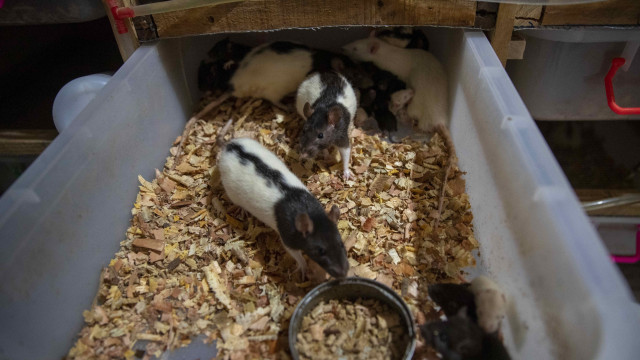Mouse embryos have been grown on the International Space Station (ISS) and developed normally to show that it is possible for humans to reproduce in space, a group of Japanese scientists has announced.
The researchers, including Teruhiko Wakayama, a professor at Yamanashi University's Center for Advanced Biotechnology, and a team from the Japan Aerospace Exploration Agency (JAXA), sent frozen mouse embryos aboard a rocket to the ISS in August 2021.
The astronauts defrosted the early-stage embryos using a dedicated device and grew them on the station for four days.
"The embryos, cultivated in microgravity conditions, develop normally into blastocysts, cells that develop in the fetus and placenta", the scientists said.
The experiment "clearly showed that gravity had no significant effect," the researchers said in a study published in the scientific journal iScience.
They also announced that there were no significant changes in the state of the DNA and genes after analyzing the blastocysts that were sent back to their labs on Earth.
This is "the first study to show that mammals can thrive in space," Yamanashi University and Riken National Research Institute noted in a joint statement Saturday.
It is "the world's first experiment to cultivate early-stage mammalian embryos in complete weightlessness on the ISS," the statement added.
"In the future, it will be necessary to transplant the blastocysts into mice to see if the mice can give birth," and confirm that the blastocysts are normal, the release added.
Such research is crucial for future space exploration missions and eventual colonisation.
As part of its Artemis program, NASA plans to send humans to the moon to learn how to live there in the long term, helping prepare for a trip to Mars, sometime in the late 2030s. /BGNES
Mouse embryos were grown in space for the first time




 24 06 2024.webp)

